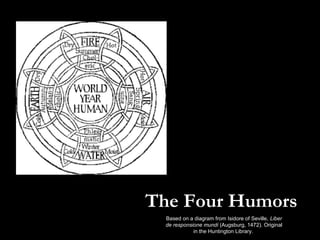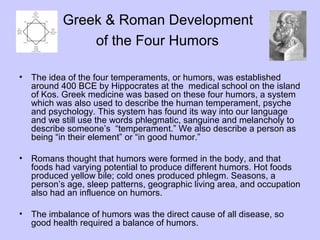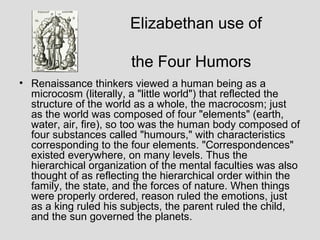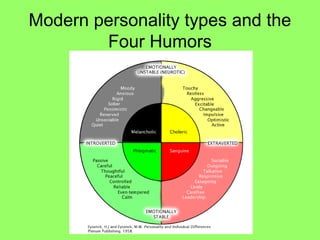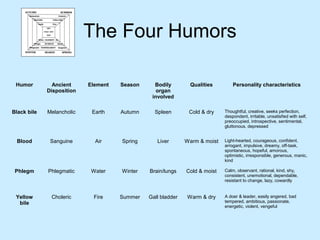The document discusses the ancient Greek concept of the four humors - black bile, blood, phlegm, and yellow bile - which were believed to govern human personality, health, and disease. The four humors were associated with the four classical elements of earth, air, fire, and water. This system was influential through the medieval and Renaissance periods, and is referenced in the works of Chaucer, Shakespeare, and others. While no longer part of modern medicine, the four humors concept still informs modern understandings of personality types.
